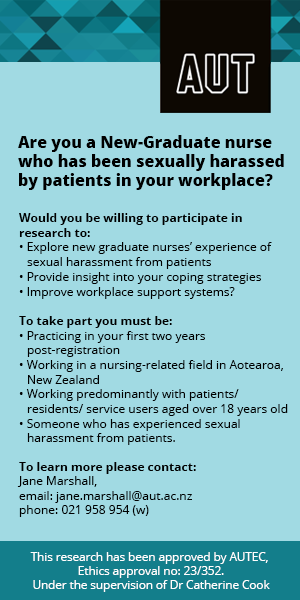Heap, 54, has been at the coal-face representing female-dominated sectors in the battle to gain equal pay on both sides of the Tasman.
Melbourne-based Heap is working with Wellington employment lawyer Peter Cranney on the NZNO Tōpūtanga Tupuhi Kaitiaki o Aotearoa and Public Service Association (PSA) pay equity case.

Heap couldn’t speak in detail about the NZNO/PSA case for legal reasons but acknowledged frustrations over slow processes, saying work was needed in both countries to make them more efficient.
“ . . . no one should be glib about this. I get somewhat frustrated when people labour the point about needing to dot all our ‘i’s and cross all our ‘t’s and . . . make sure it’s a robust process, and yes to all that, but let’s not forget there are people in need at the end of this process.”
In a video update to members in September, Cranney said new rates and a review mechanism could be determined by the authority in January or February next year – but only if the employer agreed to retain previous work completed by the parties.
The dispute over new equitable pay rates is before the Employment Relations Authority (ERA), which will decide the new rates after hearing from both parties.
Meanwhile a dispute over the agreed implementation date for any settlement and backpay, is before the Employment Court.
Next week (November 22-24) the ERA will hear evidence from lead witness, NZNO industrial adviser David Wait, outlining the union’s case for its proposed rates.
Born and raised in Perth, Western Australia, Heap says her upbringing in a “very working-class” family came with a strong understanding of the important role unions played in the lives of working people.
She recently celebrated 30 years as a union official in various roles and across multiple unions.

Heap was introduced to Cranney by the PSA in 2015. They have become allies in the pay equity movement since then.
Heap’s first foray into pay equity was a long legal campaign for members of the Australian Services Union in community services roles. The ASU won pay increases in Queensland of 23-45 per cent in 2009, and nationally in 2012. She argued the members had been underpaid because they were a predominantly female workforce, subject to historical undervaluation because of the caring nature of their work.
Cranney, who led the Kristine Bartlett case on behalf of New Zealand unions, cited Heap’s work in his arguments during that case. In 2017, the New Zealand Supreme Court found gender bias was the cause of Barlett’s low wages as a carer in the aged care sector. The Government intervened to negotiate a settlement which lifted the pay of all care and support workers in aged care by 15-50 per cent.

Heap was principal advisor for the PSA for a pay equity claim by administration workers employed by district health boards settled last year. That resulted in pay rises of 13-40 per cent for those workers.
This year, for the first time, nurses on both sides of the Tasman have launched legal action to achieve pay equity.

The Australian Nurses and Midwifery Federation applied to the Australian employment regulator, the Fair Work Commission (FWC), for a 25 per cent increase in wages for aged-care nurses.
“It’s no coincidence that this work, pre-dominantly done by women, has been historically undervalued,” ANMF federal secretary Annie Butler said in a media statement at the time of the first hearings in April.
Last week the FWC announced an interim pay increase for some aged-care nursing roles of 15 per cent, in recognition they had been undervalued.
The final outcome from the case is likely to be known next year.
Heap said a crisis in staffing for care work, including nursing, around the world in the wake of the COVID-19 pandemic has brought its undervaluation into the spotlight.

“The fact that the union movement in both countries is taking hold of that question, and pushing forward on it, can only be seen as beneficial to that global conversation around what are we going to do to make it a more attractive place to work.”
Heap said in cases where pay equity had been achieved, the results were often life-changing.
She encouraged NZNO members to “keep fighting for what should have been there all along”.
“I would say, for all women who are in this situation where their work is undervalued, to hold true to the belief that your work is worth more and that it needs to be addressed, and there are mechanisms to address that . . . and to keep the pressure on so they can’t be ignored.”


